Sure, we know this year’s Fantastic Fest was a couple months back and we covered the hell out of it. Still, we guarantee this epic and thorough survey is very much worth your time. Bet you five bucks!
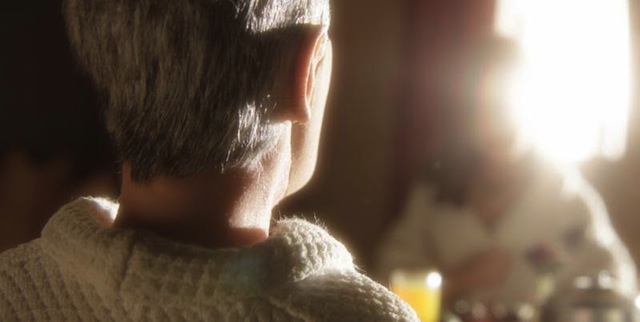
ANOMALISA (dir. Charlie Kaufman & Duke Johnson, 90 min., United States)
ANOMALISA was one of my most anticipated films of the fest. I think Charlie Kaufman is one of those rare voices of a generation, and that SYNECHDOCHE, NY is easily one of the strangest and strongest films of the past ten years. Fans of that film’s exploration of existential crises through dark humor and missed connections will certainly be delighted by Kaufman’s latest.
Much in the same manner that SYNECHDOCHE, NY explored an ecosystem of aging, health issues, and parenthood, ANOMALISA probes perhaps the greatest mystery of all: romantic love between human beings. When a motivational business speaker makes a trip to Cincinnati, he hopes to reignite a flame with a former lover, with unexpected results. It is then that he meets the character who the film is named for. Lisa is a wallflower who feels like she’s always been overshadowed by her best friend, but the semi-famous speaker raises her confidence level by taking a shine to her deep, introverted nature.
Under Kaufman’s unique lens, love is given a depth and nuance not usually seen in American filmmaking. His film proves that about a million and one factors must align in order for adult relationships to work, and only about ten percent of those factors involve physical attraction. Kaufman’s bold choice to shoot the entire film in stop-motion animation only heightens the drama somehow, as we watch somewhat alien beings enact courting rituals that are all too flawed and human.
ANOMALISA was wisely paired with the new Don Hertzfeldt short World Of Tomorrow, which can be downloaded and streamed for a bargain price of $3.99 from Vimeo. Winner of the Sundance Jury Prize for shorts, in just fifteen information-dense minutes, Hertzfeldt manages to tackle more heady concepts than many filmmakers do in an hour. Beginning with his four-year-old niece’s naive observations of the world, Hertzfeldt frames these in a context that includes cloning, time travel, and nostalgia, all with his classic simple animation style, where every single line emits emotion.
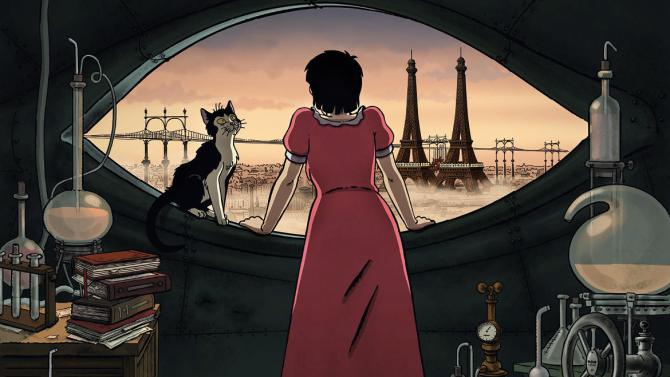
APRIL AND THE EXTRAORDINARY WORLD (dir. Christian Desmares & Franck Ekinci, 90 min., France/Belgium/Canada)
Envisioning an alternate history where Napoleon’s heirs take power, APRIL AND THE EXTRAORDINARY WORLD boasts an animation style reminiscent of the best Miyazaki, and a convoluted plot sophisticated enough to engage the most die-hard science or history buff. In this polluted steampunk dystopia, scientists and innovators have been hidden away while the city of Paris relies on old technology such as coal and steam power. April ventures forward on a brave quest to find her own scientist parents, with her appropriately named cat Darwin in tow. Directors Christian Desmares and Franck Ekinci are very talented at building a bizarre, wholly original world; however, I often felt there were too many characters and story lines to follow in the film, and it was a little overly long. It is definitely worth a look for its world-building and beautiful old-fashioned cartooning style, however.
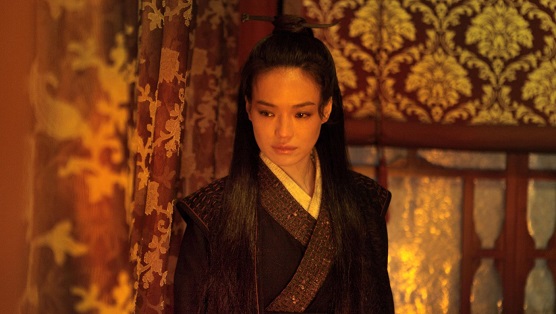
THE ASSASSIN (dir. Hou Hsiao-Hsien, 120 min., Taiwan)
Taiwanese auteur Hou Hsiao-Hsien’s new film, THE ASSASSIN, offers delightful gifts in its beautiful, pitch-perfect cinematography and sound design, as well as star turns from its principal players, Shu Qi (JOURNEY TO THE WEST: CONQUERING THE DEMONS) and Chang Chen (CROUCHING TIGER, HIDDEN DRAGON). It also realizes a new take on the tired martial arts revenge format, wherein a female assassin returns to her monastery ashamed that she couldn’t carry out a planned hit because she had too much empathy for the target’s son. Her next assignment is to murder her cousin, but even this plan is rife with complications from the city’s political intrigue and black magic. For those wu-xia fans who can endure a film that is slow in its pacing and untraditional in its King Hu action, THE ASSASSIN is a deliberately quiet, drawn-out gem that enchants through a whisper rather than a bang.

ASSASSINATION CLASSROOM (dir. Eiichiro Hasumi, 110 min., Japan)
ASSASSINATION CLASSROOM, a wacky adaptation of a popular manga title, was a perfect midnight movie concept and film. Koro-sensei, a master of VFX creation that inspires humor every time he appears, is a seven-foot yellow tentacled space creature often sporting a goofy wide-toothed grin. As part of a diabolical plot to destroy our planet, Koro-sensei takes on the difficult task of training the lackluster students of Kunugigaoka College in the art of assassination so they will be able to foil his plot someday (don’t question it, it’s just supposed to be fun). What entails is the wackiest and most disturbing of school years, and perhaps a social commentary about the ailing nature of public school education in modern times.
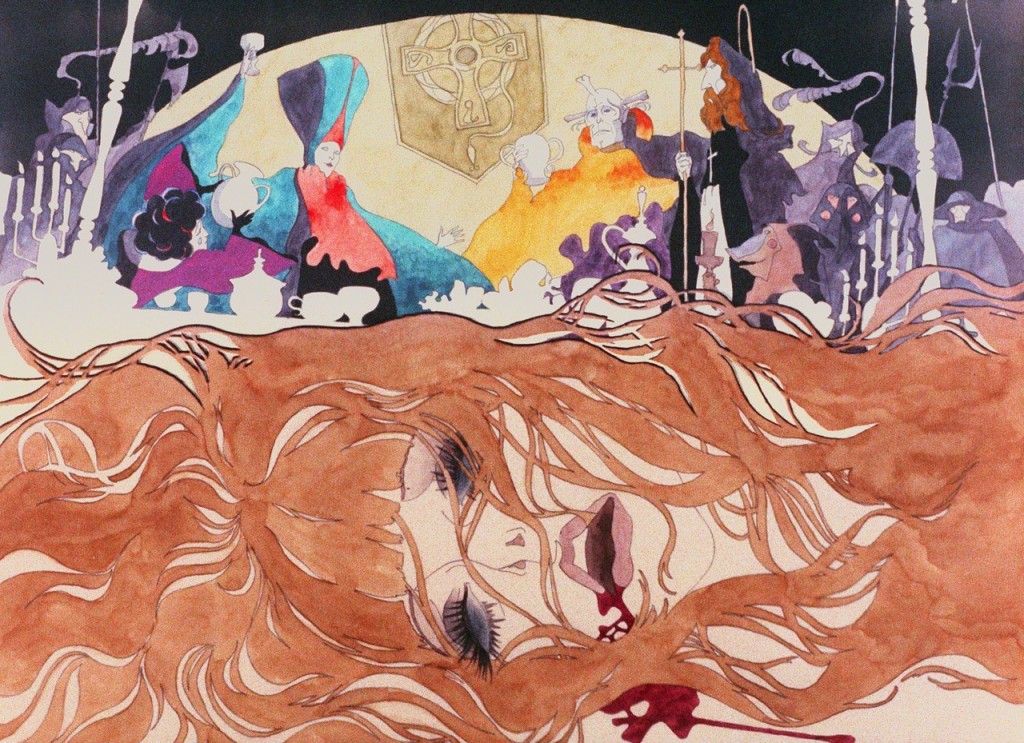
BELLADONNA OF SADNESS (dir. Eiichi Yamamoto, 86 min., Japan, 1973)
A frequently challenged, transgressive lost entry in the dark art of Japanese animation, BELLADONNA OF SADNESS has a lot of gifts to offer viewers who are not easily offended. The story alone is a play on a classical Biblical tale, but still not for the faint of heart: Jeanne (voiced by Aiko Nagayama), who resembles Joan Of Arc in her capacity for sacrifice, is raped by a local lord on her wedding night. To cover this indignity, Jeanne makes a pact with the devil (voiced by Tatsuya Nakadai, from Kurosawa’s RAN), who predictably turns her into a character that is decidedly more fiery and passionate, instead of merely an innocent victim.
Fueled by an amazing Japanese psych-rock soundtrack led by avant-garde jazz composer Masahiko Satoh, and referenced by many American artists without ever being officially released, it is high time for the pleasing ear and eye candy of BELLADONNA OF SADNESS to be brought to light, and to win over new audiences of the type who enjoy such things as Ralph Bakshi and FANTASTIC PLANET.
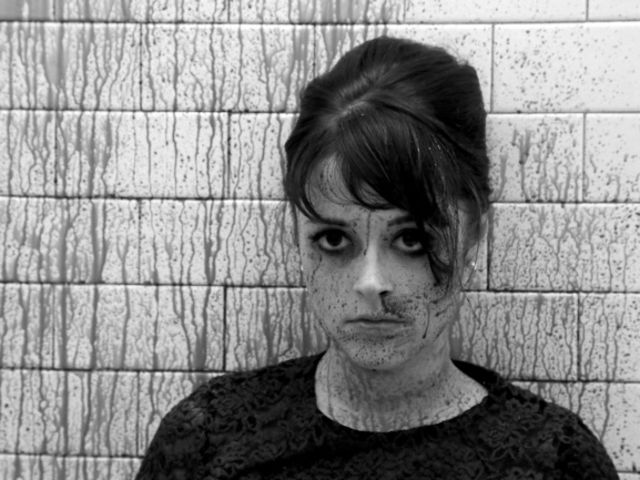
DARLING (dir. Mickey Keating, 78 min., United States)
DARLING is nearly flawless in technical achievement. With its simple story of a caretaker assigned to a New York estate with some obvious negative vibes (it is revealed a suicide happened there), Keating ratchets up the tension with gorgeous, ominous black-and-white cinematography showcasing the opulence of the apartment, as well as sound design that imbues ambient noise like the ticking of a clock with layers of meaning. As the young actress Laura Ashley Carter slowly succumbs to the pressue of a haunted atmosphere, the film disturbs and surprises even though the audience could sense what was coming.
Keating definitely has all of his audio-visual techniques down, but on an originality level, Darling lacks something. In a Q & A after the film, one of the first questions asked of Keating if he had ever seen REPULSION. DARLING is almost too indebted to this Polanski film in his play on female sexual neuroses and the impact of isolation. Still, for a young, upcoming filmmaker, Mickey Keating showcases a lot of talent, and is definitely a filmmaker to keep an eye on.
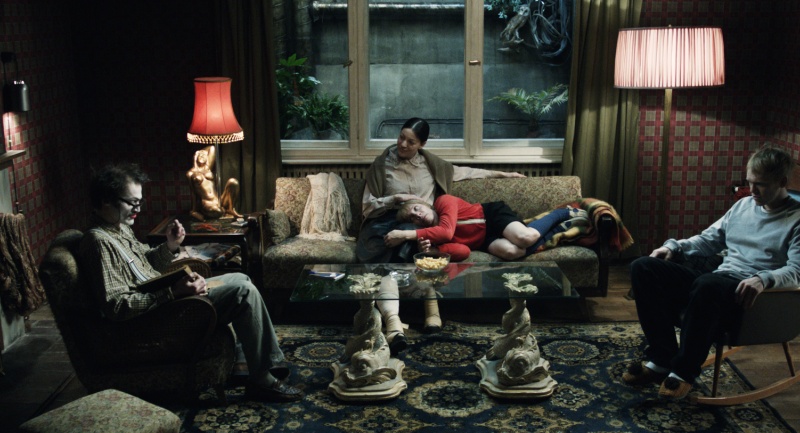
DER BUNKER (dir. Nikias Chryssos, 95 min., Germany)
One of my personal festival favorites came packaged in the odd little Greek-German co-production DER BUNKER. The setup sounds simple enough: a young student, looking for a cheap place to stay and study, finds a family letting out a spare room in the military bunker where they live. However, director Nikias Chryssos slowly reveals the odd, insular nature of this peculiar family, literally sheltered from the world in a way that is reminiscent of another recent Greek masterpiece, DOGTOOTH.
In this deranged nuclear family, we meet the son Klaus, who seems to be in a state of arrested development. The family claims he is eight even though he appears to be a grown adult closer to thirty, despite his childish manner of dress. The rooming student is roped into being Klaus’s tutor, and quickly learns that the man-child’s mind is mentally stunted, even though his parents keep claiming that he is gifted, and will one day be the President of the United States. At least Heinrich, who is apparently an alien creature living and speaking out of Mother’s leg, thinks so.
It’s definitely not everyone’s cup of tea, but fans of quirky dark comedies will get a lot out of the unconventional diamond in the rough that is DER BUNKER.

EVOLUTION (dir. Lucile Hadzihalilovic, 81 min., France)
What a wondrous, genre-defying, almost indescribable beauty of a film Evolution is, almost more of a painting than a film. No clear answers are doled out to the audience; instead, director Lucile Hadzihalilovic invites viewers to ponder some very important questions she slowly introduces about gender, illness, and of course, scientific evolution. Life came from the sea, life can return to the sea, and if there is new alien life to evolve, it is quite possible it will come from the puzzling enigma that is the sea.
The viewer’s entry into the film’s seductive mystery is through Nicholas, a preteen boy who seems to live on an island composed of only boys his age and women who seem more like sexually inclined mermaids than the women we are used to. Nicholas is restrained in a hospital with other boys like him for reasons he either doesn’t know or can’t remember, but seems to have deep-seated memories of an earlier existence. I know some fest members who saw this film at least a few times, trying to dig something deeper out of its enchanting spell. For me, being enthralled by the spell was enough.
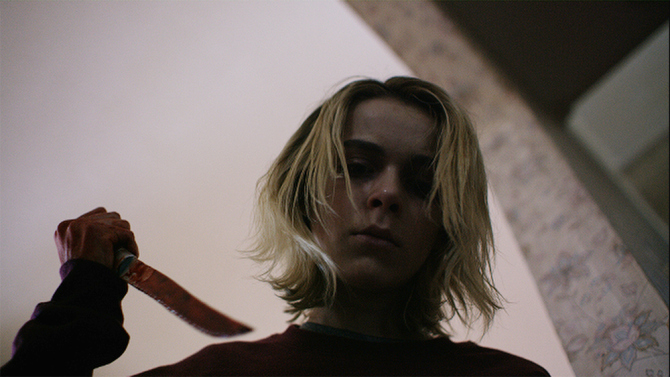
FEBRUARY (dir. Osgood Perkins, 93 min., United States/Canada)
Another surprise festival favorite, FEBRUARY somehow offers a completely original take on the tired genre of demonic possession. Excelling at nearly every level of filmmaking, from its gorgeous controlled cinematography that depicts a severe, slate-grey atmosphere that consumes everything during the most bleak and hopeless month of the year, to a top-notch cast, to stellar sound design, FEBRUARY is a tense, unforgettable nightmare of a film.
The plot sounds almost like a cliche on paper: young actress Kiernan Shipka (best known for playing Sally Draper on Mad Men) is stuck waiting at her strict Catholic school for her parents to pick her up, which they fail to do as a blizzard increases in intensity. As Shipka’s character Kat descends further into loneliness and broken dreams, Joan (Emma Roberts in another surprising star turn from a young actress) becomes her unlikely and unwilling guardian during winter break. The rest of the story is better left for the audience to find out, but director Osgood Perkins does a fantastic job of ratcheting up the tension and suspense through sound, visuals, and acting, until the film reaches a peak and makes a clear statement about the nature of evil and, surprisingly, redemption. What causes the nature of evil is left open to interpretation, but according to Perkins many factors can invite it in; neglect, solitary confinement, abuse, and misunderstandings may all contribute to letting it in. FEBRUARY is a dark horse of hard-hitting spiritual messages for those who are able to appreciate it.

FOLLOW (dir. Owen Egerton, 74 min., United States)
For me at least, Follow was one of the only weak points in an otherwise exceptionally well programmed festival. On paper, this film sounded promising, as it follows a starving artist whose romantic relationship is suddenly severely jeopardized during the most inconvenient time of the year, the holiday season.
This is Owen Egerton’s debut film, so it seems only reasonable to hold out hope that he will improve over time. However, working from this seemingly strong premise, Egerton soon falls victim to various cliches of the ambiguous killer spiraling into madness. Noah Segan’s performance as Quinn, the tortured artist, is a little overwrought, as are the amped-up illusions to how much more painful his experience of heartbreak is during the holidays. FOLLOW has an interesting premise, but faulty execution. We can only hope that Egerton learns some hard lessons from this film, and applies them to his future productions.
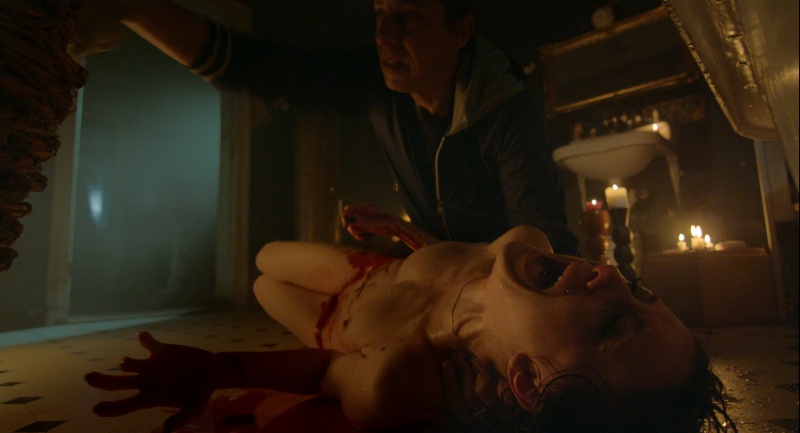
GERMAN ANGST (dir. Jorg Buttgereit, Michal Kosakowski & Andreas Marschall, 111 min., Germany)
A truly twisted trilogy, GERMAN ANGST is aptly named and was perfectly programmed as a midnight feature. I was mainly interested in Jorg Buttgereit’s segment, as the NEKROMANTIK series of films left an indelible impression on me. Final Girl did not disappoint, delivering on the intensity of Buttgereit’s earlier films and offering many nauseating, difficult-to-watch moments in gruesome close-up. It is best to go into this short cold, so I will only reveal that it is about a teenage girl who keeps guinea pigs and is very interested in anatomy.
The second short in GERMAN ANGST, Make A Wish, is perhaps the most challenging in terms of content. I found it relentlessly, and often needlessly, cruel. Michal Kosakowski seemed to only have one point that he hammered home: political extremists are dangerous. If you like to watch a deaf-mute couple tortured in every way you can imagine before they are offered a brief respite that comes as cold comfort, this is the film for you.
I was pleasantly surprised to find the third installment in the film, Andreas Marschall’s Alraune, to be my favorite story. It offers a novel concept in following a male photographer who is drawn deeper into a dark tunnel of alluring pornography and women who seem designed to fit a male fantasy stereotype. With far less blood and gore than the first two shorts, Alraune is the film I found myself thinking about the most, and the director Marschall was on hand to confirm that the premise truly is about the pursuit of sex and fantasy to a dark conclusion, something I sensed and enjoyed.
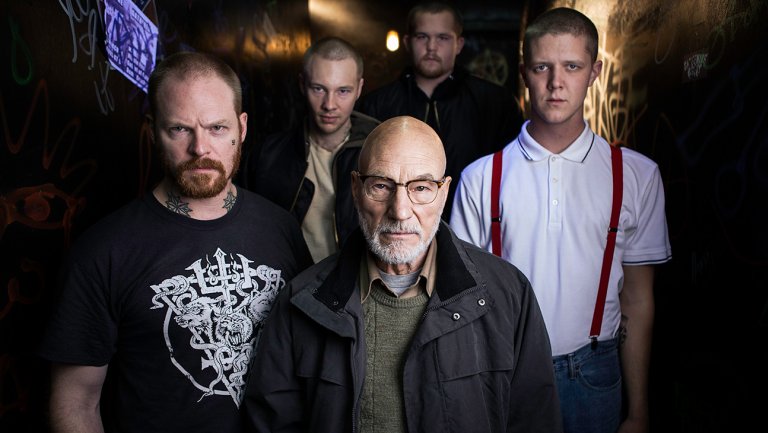
GREEN ROOM (dir. Jeremy Saulnier, 94 min., United States)
Festival favorite Jeremy Saulnier’s GREEN ROOM was surely one of the most highly anticipated films of the fest for many people. Saulnier landed a huge hit a couple years back with BLUE RUIN, a refreshing new take on the revenge genre. In GREEN ROOM, he creates his own unique version of a tense thriller or crime caper.
GREEN ROOM follows a young punk band, The Ain’t Rights, who, desperate for money to get home, accept a gig at a run-down club. The gig quickly goes south when the green room is invaded by a pack of angry skinheads led, oddly enough, by Patrick Stewart. A largely unknown cast turns in a solid performance on both sides, and Saulnier manages to escalate and build tension throughout the film as the musicians try to defend themselves from attack.
Whether you are more of a BLUE RUIN or GREEN ROOM fan may depend a lot on your preference. Personally, I found BLUE RUIN to be the superior film, but I am more a fan of quiet, character-driven work. GREEN ROOM is much more of an action movie, and I felt like the ensemble cast was sometimes so large that some of the actors got lost in the shuffle. However, I did enjoy the signature Saulnier black humor and of course, the excessive violence. I was also clearly in the minority in my lukewarm opinion of GREEN ROOM, as it later won a festival favorite award.
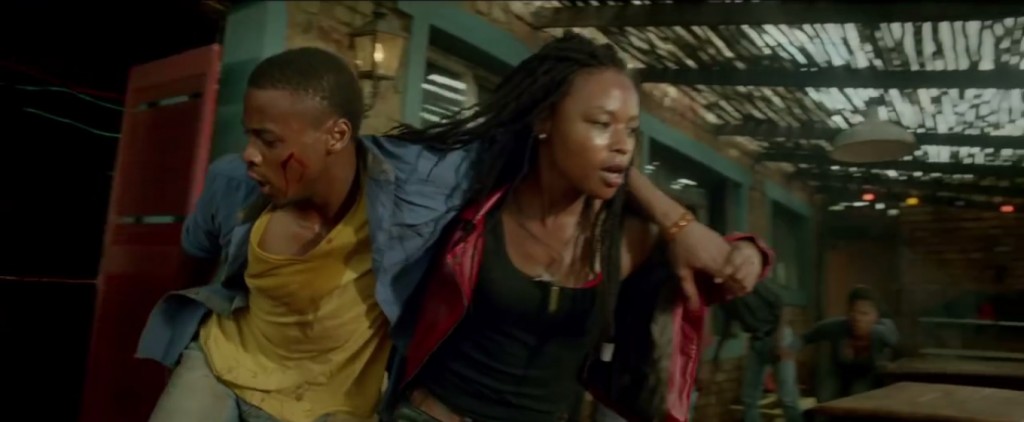
HARD TO GET (dir. Zee Ntuli, 94 min., South Africa)
It’s hard to believe that HARD TO GET is a debut film from a 25-year-old director from South Africa of all places, not a region exactly known for cranking out movies. What seems like a traditional story about a handsome charmer who works at a local restaurant becomes much more complex when the lothario, TK (played with great skill by the fresh-faced Pallance Dladla) falls for Skiets (the equally talented debut actress Thishiwe Ziqubu), a pretty girl with a dark history. Thus begins an almost unclassifiable genre film, part dark comedy, part romance, and part a re-imagining of film noir and the femme fatale.
TK and Skiets are a pleasure to watch, partly because they are ridiculously talented unknowns matching wits, playing sexual games, and using a combination of their sharp minds and street smarts to stay one step ahead of the law in this stunning entry from the gifted young prodigy Zee Ntuli.
HIGH RISE (dir. Ben Wheatley, 118 min., United Kingdom)
Surely one of the other most anticipated films of the festival was fan favorite Ben Wheatley’s audacious, nearly two-hour-long adaptation of the supposedly unfilmable J.G. Ballard novel HIGH RISE. Ballard’s work, which is highly conceptual and surreal, is difficult to translate to the screen to say the least, but if there was anyone well suited to handle the task it is certainly Ben Wheatley, perhaps an equal match in terms of high concept and riskiness.
Ben Wheatley and cowriter and co-editor Amy Jump work hard to get every detail right, from excellent 1970s art direction and design to rival Mad Men (it seems no big surprise that Elisabeth Moss plays a central role in the film) to covers of ABBA’s “S.O.S.” to set the time period and the mood. The “plot,” if it could be described as such, is a common tale that has been found in genre films over time; the aristocratic wealthy populate the upper floors of a modern high rise, while the working class are housed near the bottom with less of the community benefits.
The high rise, a seemingly utopian self-contained community, is on the verge of breaking down into class revolt and warfare, when finally the triggering incident of a child’s birthday party incites mass chaos with both startling and darkly comedic results. A top-notch cast, including the aforementioned Moss, as well as Jeremy Irons, Tom Hiddleston, Sienna Miller, and Luke Evans, are all skilled players on this visually delightful stage. Wheatley is a deft master of tone management, easily switching between tragedy and comedy in this alternately bleak and hilarious dystopian American fable.
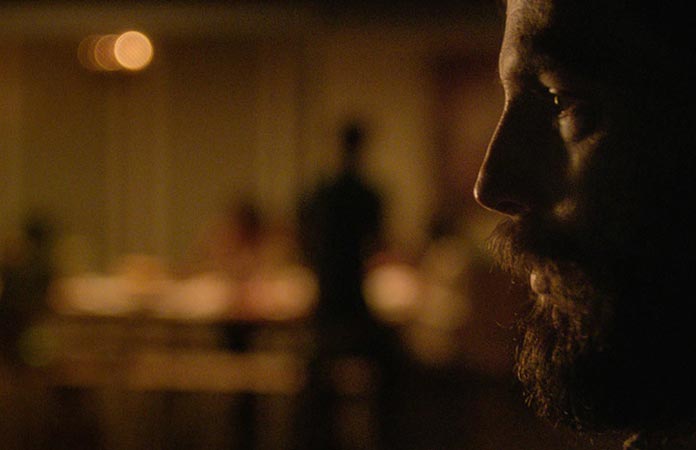
THE INVITATION (dir. Karyn Kusama, 97 min., United States)
I was lucky enough to catch a special screening of THE INVITATION with talented young director Karyn Kusama (GIRLFIGHT) in attendance. She very lucidly explained something I intuitively understood from watching the film; it is about how we struggle to find easy answers to life’s large emotional problems like grief and loss, and they are never so readily available. What a sad, and yet very real and human, concept this movie presents.
THE INVITATION is quite cleverly told mostly through the lens of Will (in a well-played turn by Logan Marshall-Green, where he registers just the right emotion on his face that every scene calls for), who acts as a classic example of the unreliable narrator. There are several awkward facets that set the scene for the dinner party we are about to witness. First of all, the dinner party is being thrown by Will’s ex (the equally expressive and intense Tammy Blanchard, with the symbolic name Eden). The exes are both meeting each other’s new partners, and all the while sidestepping an enormous elephant in the room, which is the tragedy that had a large part in dissolving their marriage.
As the dinner party escalates, Kusama strikes the perfect balance in ratcheting up the tension, and keeping the audience guessing at whether or not Will’s vision of the cult-like aspects of the party are entirely accurate, or whether Eden has found a peace of mind and enlightenment that are still beyond Will’s grasp. To Kusama’s credit, the answer to these looming questions is just as rich and nuanced as the film itself.
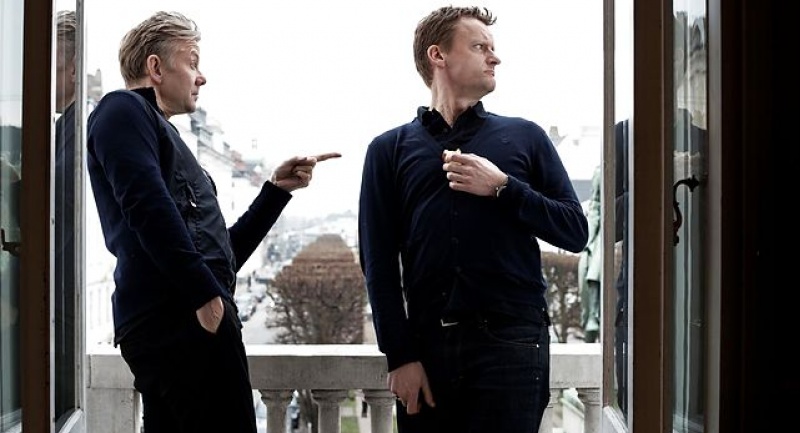
KLOWN FOREVER (dir. Mikkel Norgaard, 90 min., Denmark)
KLOWN FOREVER, far and away the festival’s crowning achievement in comedy for my money, was wisely programmed in the midnight slot most times it appeared. Anyone who has seen the original KLOWN couldn’t help but anticipate the follow-up, with the undeniably strong chemistry between Danish leads Frank Hvam and Casper Christensen, working under consistently solid direction from Mikkel Norgaard. Not surprisingly, KLOWN FOREVER is an even richer film than the original, finding its two flawed male characters five years down the road with more problems and crazy capers than ever, and the improvisational riffing between the comedy duo, who have also worked together in a long-running comedy series, even stronger.
KLOWN FOREVER is a more nuanced, engaging film exploring common reasons why male friendships drift apart in middle age, which are rarely so honestly probed on the big screen. Frank has now become a father, while Casper is a free single man, enjoying his sexual exploits and sharing them with Frank. It is quite possible that Frank finds fatherhood stifling, and his bumbling everyman mistakes are even funnier when applied to something society values as much as being a good, faithful husband and parent. As Casper continually seduces Frank into troublesome situations, Frank works steadily to undo the damage he may be doing to his family and to resist Casper’s strong male fantasy temptations, to hilarious escalating results.
I was treated to an appearance by the lovable comedy duo itself after the film, who confirmed that a central idea behind the KLOWN movies is actually just how far immature males can take their antics and still be forgiven for their sins. The most beautiful thing about the KLOWN films is that while pushing the envelope of dark male desires, they manage to portray the flaws of their characters as all too human, and often grant them dignity and yes, absolution from their sins. As the partnership between Frank and Casper becomes even stronger over the years and overcomes even more obstacles, I think we can expect only greater things to develop from the KLOWN franchise, which is exciting.
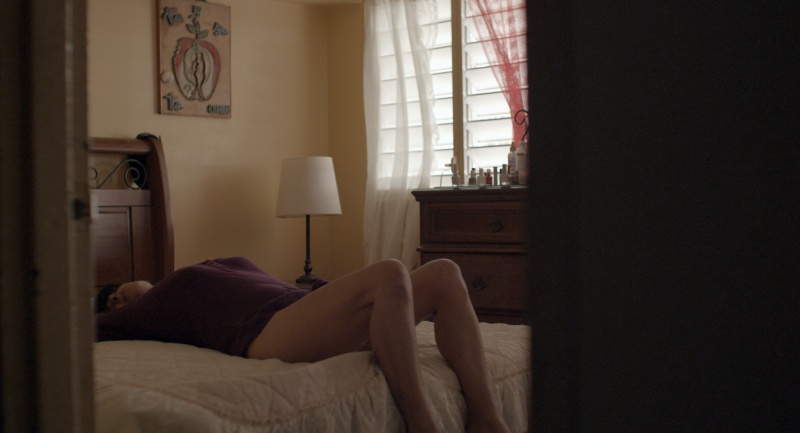
LA GRANJA (dir. Angel Manuel Soto, 100 min., Puerto Rico)
One of the most difficult to watch, dark sleepers of the festival, LA GRANJA often felt like an endurance test, though it yielded appropriate gifts for those of us brave enough to power through it. Following a path of separate gritty narratives that involve cock fighting, drug abuse, casual sex, and blackmail, all set in the desperate confines of a Puerto Rican barrio, skilled director Angel Manuel Soto demonstrates how all of these hopeless situations are tied together by the roots of ingrained poverty, and how all of the players on his stage just barely miss the boat on meeting, connecting, or being able to help each other with their rough lives.
One of the central challenges of Soto’s films is that there seems to be no relief or solution for any of the characters caught up in this dark drama. The barrio is depicted as a place of excessive loneliness from which there is no escape, only increasingly more questionable decisions that further isolate the characters from each other, and from any hope of resolution. It is neither a hopeful message, nor an uplifting one, but I truly believe it is a politically and socially important one, and it is my hope Soto’s film reaches an audience that is poised to carefully consider the messages it has to teach about the cycle of poverty, drugs, and military policing that aid the repetition of mistakes throughout history.

LAZER TEAM (dir. Matt Hullum, 110 min., United States)
As another of the few comedies offered during the festival, I chose LAZER TEAM as a supposed relief from the onslaught of many heavy genre films. While the Rooster Teeth comedy team behind this feature have some fun chemistry and their replication of tropes from the 1980s science fiction films they are parodying is uncanny, I found their sense of humor to be overly crass and immature where I was hoping it would be more sophisticated. No real character came through as quite distinctive for me, and I was a little disappointed at how often the film seemed to rely on the lowest common denominator in an attempt to pull laughs from the audience.
On paper, the concept sounds novel and funny; intelligent life has finally been detected in the universe in the year 2015, and what’s more, they have decided to send a special package to Earth. However, in an IDIOCRACY-style move, before this package reaches Earth, four completely average American dudes (read: idiots) manage to get their hands on it, and thus the safety of everyone on the planet is threatened. Your mileage may vary with LAZER TEAM; if you like your parodies excessively silly and not very challenging, it’s a fun popcorn movie with a lot of moronic behavior. However, the straightforward riffing on 1980s films, with barely any sharp social commentary offered, made me wonder just how many lights are really on with the Rooster Teeth team. It definitely lacked the bite of Mike Judge or Astron-6 satire, although it is entirely possible I was expecting too much from the film.
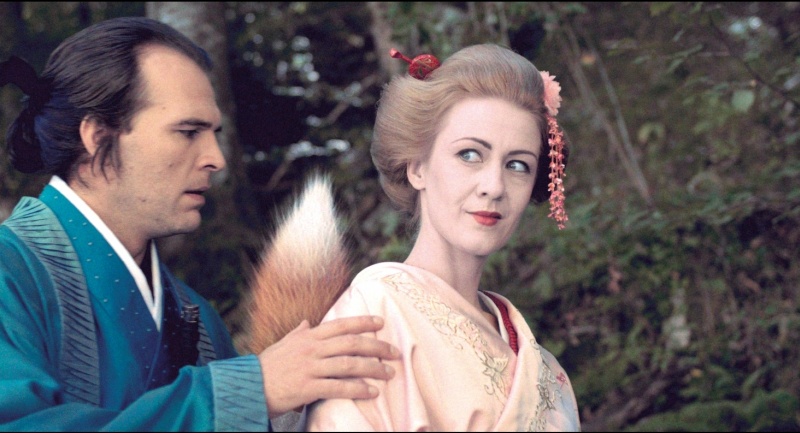
LIZA THE FOX FAIRY (dir. Karoly Ujj-Meszaros, 98 min., Hungary)
What a beautiful gem of a film this is, my hands-down favorite of the fest. At every turn, it sings with life, innocence, and beauty, and proves itself as one of the loveliest adult fairy tales about finding true love I have ever experienced. Absolutely no holds are barred in its stunning visual invention by insanely gifted debut director Karoly Ujj-Meszaros, who seems to be channeling the sprit of the beloved Jeunet-Caro duo. The central naive, awkward character of Liza, perfectly played with just the right touch of repressed longing by the gorgeous Monika Balsai, demands attention every minute she is on screen. In fact, if you can picture AMÉLIE crossed with bizarre Japanese folklore and a surprising amount of gore and violence, you may have a close approximation to this entirely unique vision.
Without revealing too much about the mechanics of the plot, it heavily features an interesting fictional interpretation of Hungary, the ghost of a popular, Elvis-like Japanese pop singer, a string of inappropriate suitors, a bumbling but clever police officer, and a pulp romance novel which Liza seems to be clinging to as a lifeboat out of her lonely existence.
I won’t reveal whether or not Liza succeeds in her singular quest for true love, but I will admit you will have a lot of fun along the way, or else I doubt if you have a soul.

LOVE AND PEACE (dir. Shion Sono, 117 min., Japan)
One of my personal most anticipated films of the fest, I am happy to say I found Shion Sono’s latest to be a pleasing return to form after his somewhat disappointing (at least to me) TOKYO TRIBE. Sono’s films usually play very well at Fantastic Fest, and LOVE AND PEACE is no exception, surprisingly channeling the dark trauma of childhood often portrayed so well by Pixar Studios. It runs with this current to present a completely devastating conceit behind abandoned pets and toys that speaks to a larger idea about what we value in society, and why.
Surprisingly straightforward and heartwarming for a director who has been noted for his dark, edgy nature, LOVE AND PEACE tells a simple story about washed-up singer Ryoichi who finds new life in composing special songs for his beloved pet turtle. When office politics pressure Ryoichi to flush his dear turtle down the toilet, sobbing the entire time, the turtle manages to land in an interesting menagerie not too dissimilar from an island of misfit toys. Using his surreal gift of perception to explore the things we throw away and what we decide to keep, Sono penetrates to the core of a secret heart shared by his audience, all while delivering a powerful social statement about Japanese society, especially in his skewering of an obsession with the Olympics and the building of a large stadium that resembles a turtle.
The story of how Ryoichi finds love, redemption, and reunion is a twisted, but also very sweet, journey, fueled by love, peace, personal growth, and once of the catchiest anthems of Fantastic Fest. I can’t lie; it brought both tears and smiles to my face the entire time.
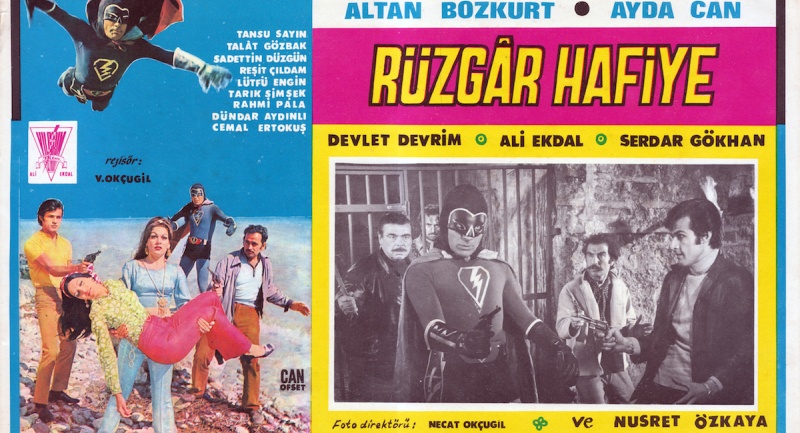
REMAKE, REMIX, RIP-OFF (dir. Cem Kaya, 96 min., Germany/Turkey)
The story of Yesilcam, the Turkish film industry, is so fascinating that this documentary can almost coast along just on subject matter alone. Anyone who has had the pleasure of enjoying one of Turkey’s very loose adaptations of hit American movies, like the Turkish STAR WARS or Turkish EXORCIST, knows how much fun these low-budget, affectionate films are to watch.
REMAKE, REMIX, RIP-OFF is an engaging look behind the making of these films, which took advantage of Turkey’s loose copyright laws, energetic love of cinema, and many cheap, creative props like cardboard costumes and sets, to help bring popular franchises to Turkey. Cranking out at least hundreds of these unique films at a low cost, the industry was both prolific and embraced by Turkish directors and audiences alike for its heart and humor.
The documentary is only minorly flawed; the run time feels a little long, and the main narrative thread of the production of these films, boasting a slew of entertaining clips, is a bit derailed when the discussion of government censorship begins. Still, this is a great introduction to one of the most truly bizarre film movements in history, and if it turns new viewers on to these overlooked films, it is well worth the price of admission.
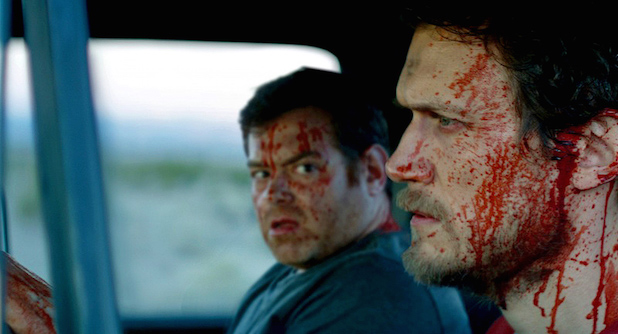
SOUTHBOUND (dir. Radio Silence, Roxanne Benjamin, Patrick Horvath, & David Bruckner, 87 min., United States)
SOUTHBOUND seems lightly indebted to classic horror anthology films like CREEPSHOW and the TWILIGHT ZONE movie, all while proving to be much smarter and complex than those reference points. Using the desolate desert as a backdrop for lonely characters who all seem to be on the run from something, the film somehow weaves all its stories together into a narrative whole that has both a consistent look and tone. I was lucky enough to see the film with the directors on hand afterwards to explain how they had accomplished this feat, and they told me they had each separate writer work on an assigned thread of the story that would cohere into the over-arching tale.
Unlike a lot of anthology films, too, I never felt like there was a weak link in Southbound. All of the portions were very strong, featuring some very imaginative special effects for monsters, and very novel concepts for unusual terror, like someone completely unqualified being forced to undertake surgery. I highly admired this Radio Silence project, and will eagerly anticipate anything they do in the future.
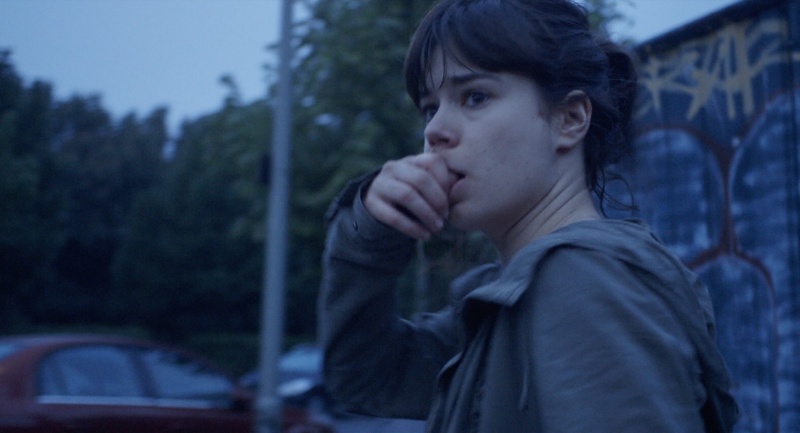
VICTORIA (dir. Sebastian Schipper, 138 min., Germany)
A gorgeous exercise in style filmed all in one shot, VICTORIA easily rises above what might be a gimmick to portray a beautiful woman who could either be considered very naive or very accepting, all depending on your point of view. Laia Costa turns in a stellar, career-defining performance as the titular Victoria, a beautiful young woman who, perhaps against her better nature, falls in with what appears to be a street gang of petty criminals.
While the young men’s attraction to Victoria is quite unclear, the way she is drawn to their vulgar behavior is not. However, they soon become fast friends, and Victoria is slowly sucked into a chain of events that will ultimately test how far she is able to follow them down their rabbit hole of bad behavior.
The fact that the vast majority of the film takes its time showing how these characters bond is an asset to my mind, not a drawback. Using a naturalistic, improvisational style not too dissimilar from that of Harmony Korine, director Sebastian Schipper builds a believable relationship between these characters before anything tense even begins to happen. VICTORIA may be a bit of a slow burn, but once it gets going the tension is palpable, and part of the film’s pleasure is watching the lovely lead become slowly seduced by questionable ethics.
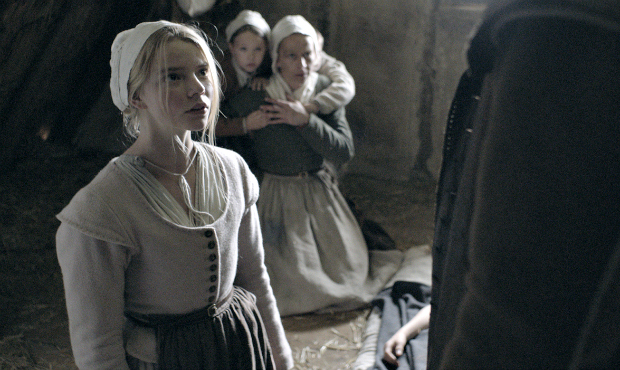
THE WITCH (dir. Robert Eggers, 90 min., Canada, The United States)
Another festival favorite that garnered buzz for obvious reasons, THE WITCH is a little slow to get started, and keeps the audience guessing as to whether the witchery is real or only a figment of a New England colony’s imagination. However, part of the film’s strange allure is completely and faithfully replicating every aspect of this dark time in American history, from the fully accurate set design to the costumes to the speech, and even the feeling of suspense community members must have felt living there.
Once witchery and black magic are proven to exist among the tight-knit colonial settlers, and one family in particular, the film delivers some cringe-worthy scenes, all still grounded historical accounts of witchcraft. Robert Eggers creates a special world where visible acts of devilry were very real, and very unlike the stereotypical, falsified views of witchcraft we have seen in mass-produced media over the years. By the ending, I felt like I had been transported to another, much more dangerous, time and place, and had chills running down my spine from visiting this repressive and frightening atmosphere.

ZOOM (dir. Pedro Morelli, 96 min., Canada/Brazil)
ZOOM is a brilliant little film that manages to tackle a lot of big ideas, namely body confidence issues, relationships between men and women, and the nature of storytelling, all in an entertaining package that seamlessly incorporates animated segments and the breaking of third, and even, fourth, walls of reality. Hearing the story on the paper, it would be easy to imagine that viewers could become lost in the film as it rapidly shifts narrative, but a deft, empathetic script from debut writer Matt Hansen, as well as a confident direction from Pedro Morelli, keep the story moving right on track.
Just to touch upon a few threads of the interesting, nuanced narrative, a comic artist (played with a convincing level of sarcastic smarts by Allison Pill), is persuaded by her own fantasies to undergo breast augmentation, which she later regrets. Michelle, a beautiful Brazilian model, is tired of being appreciated only for her physical beauty, and longs to be admired as a more cerebral writer of novels. And director Eddie, famous for his boundary-pushing action films, suddenly loses a sense of manhood. Somehow all these stories collide in fascinating ways, all while exploring important facets of gender roles, self-perception, body image, and more. A top-notch cast, writing that often feels more funny than self-important, and strong ties between characters and events make ZOOM one of the overlooked gems of the festival, supposedly light fare that offers a lot of food for thought when you begin digging into it.
— SHARON GISSY.
Read more from Sharon: Going deep on Andrzej Zulawski’s POSSESSION.
LOOKING FOR UNDERGROUND CULT MOVIES, DVDs, LIMITED VHS & OTHER COOL STUFF.
CHECK OUT THE DAILY GRINDHOUSE/CULT MOVIE MANIA STORE
Tags: Film Festivals


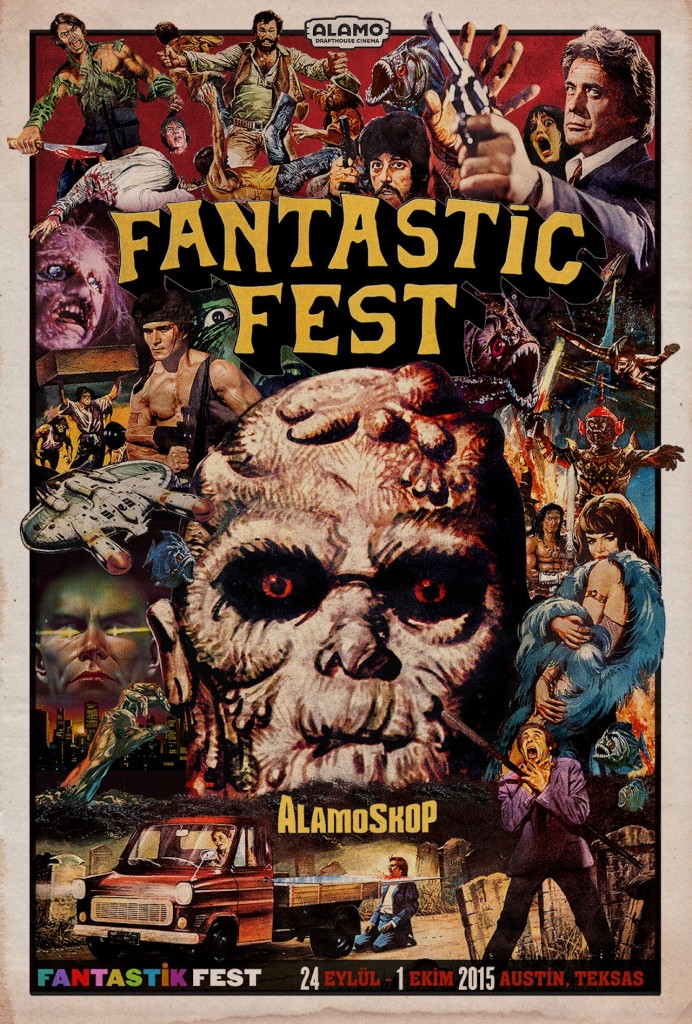

No Comments